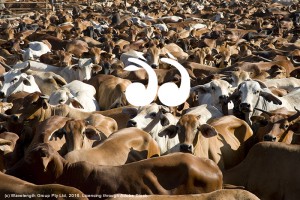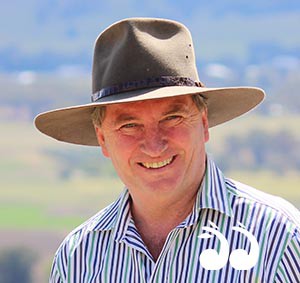Fork in the Road for Local Jobs
THE Australasian Meat Industry Employee’s Union said we are at a fork in the road with Australian jobs and live cattle exports and sending another million live cattle overseas will cost thousands of local meat workers their jobs in an already depressed market.
David Hollis, who works at the Scone meat works and is a delegate of the Union, said he is worried that fewer cattle being processed will mean more cut backs.
“We’ve already gone from two shifts to one shift and on the second shift there was a little bit more money than the other shift and it is hard to live on at the moment,” said Mr Hollis.
“Every now and then we’ll have a short day because of the shortage of stock and it’s just the way it is and I’ve been in the game for about 26 years and we’re not sure if our jobs are safe if more live exports go ahead,” he said.
“I just want the government to keep as many cattle in Australia as we can so there is more work opportunity here in Australia with the cattle,” he said.
“It’s hard when I’ve got three kids to support and the majority of people up here have kids and it’s really hard,” David Hollis said.
According to Graham Smith, the national secretary for the Union, said it is a critical fork in the road for Australian workers.
 “There is a fork in the road and the cattle may head one way to the port and there will be half a dozen people loading the cattle onto ships, or they go the other way to a meat works and there are 500 people working there,” said Mr Smith.
“There is a fork in the road and the cattle may head one way to the port and there will be half a dozen people loading the cattle onto ships, or they go the other way to a meat works and there are 500 people working there,” said Mr Smith.
“The more we send out live the less jobs there are in Australia,” he said.
“Barnaby Joyce wants to double the live trade so that we are sending an extra million to China, so that’s two million gone of the total nine million that we can process through Australia,” he said.
“And the meat workers are being hit by a double whammy, because our herd is at its lowest point in 23 years, there just aren’t the cattle being processed and then with more live trade there will be even less to process in Australia.
“Barnaby Joyce is trying to spin this idea that they are separate industries drawing from different cattle, but the processing sector and the live export sector are all drawing from the same herd,” he said.
“We are all for exporting beef, but we want to process Australian cattle in Australia to grow Australian jobs,” he said.
“The ideal solution is to make it equally profitable for the farmer to send the cattle to our processing plants as it is to sell them live,” he said.
“We don’t begrudge the farmer making a profit, but we do begrudge the loss of Australian jobs,” Graham Smith said.
Barnaby Joyce Deputy Prime Minister and Member for New England said there is no competition between the live export market and the local meat processing industry.
“The Coalition government has not and will never choose live animal exports over meat processing jobs,” Mr Joyce said.
“Live animal exports and the domestic processing sector complement one another, and have successfully coexisted for many decades.
“The Coalition has improved market access for live animal exports, and has significantly improved trade conditions for meat processors through massive tariff reductions in our free trade agreements, meaning that Australian boxed meat is much more competitive on the international market – boosting local jobs.”
“Meat processing across the country more broadly has faced challenges recently not because of live animal exports, but because of supply constraints caused by record cattle turnoff as a result of drought conditions and strong prices.”
Tony Windsor, independent candidate for the seat of New England, said the cattle producers determine the percentage of cattle sold as live exports.
“The market determines if the cattle go left or right at the fork in the road,” said Mr Windsor.
“I don’t support restrictions on live trade, as long as it is done in a humane fashion,” he said.
“If there were possibilities of processing animals here for export, then the answer is yes,” he said.
“But the cattle producer would have to get more for it and if they could get more for it they’d be doing it now,” Tony Windsor said.
 scone.com.au
scone.com.au